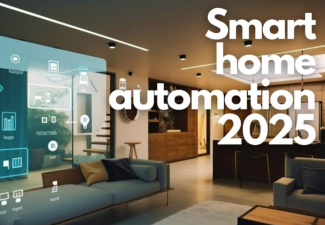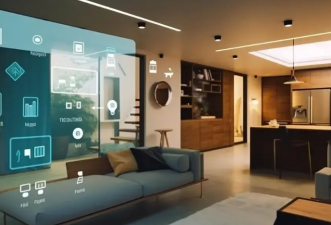With the rapid development of science and technology, smart homes are changing our lifestyles at an unprecedented speed. In 2025, the field of smart homes has shown many remarkable trends, and many innovative devices have emerged to create a more convenient, comfortable and safe living environment for us.
With the rapid development of science and technology, smart homes are changing our lifestyles at an unprecedented speed. In 2025, the field of smart homes has shown many remarkable trends, and many innovative devices have emerged to create a more convenient, comfortable and safe living environment for us.

Smart security equipment
Smart door locks are no longer a new thing, but the smart door locks in 2025 have achieved a significant upgrade in function. In addition to the common fingerprint, password, and mobile phone APP unlocking methods, some high-end smart door locks have also incorporated advanced technologies such as face recognition and vein recognition, which have faster recognition speed and higher accuracy, bringing users extreme convenience while greatly improving family security.
Some smart door locks have also added anti-theft alarms, abnormal alarms and other functions. Once an abnormality is detected in the door lock, a notification will be immediately sent to the user's mobile phone, so that you can always guard the door when you are away.
As an important part of home security, smart cameras are also constantly evolving. Today's smart cameras have high-definition image quality, night vision, and even support 360-degree panoramic monitoring, so that every corner of the home is under control.
In 2025, some smart cameras are also equipped with AI human detection technology, which can accurately identify people in the picture and effectively reduce false alarms caused by pets, light changes, etc. Some products also support cloud storage, which is convenient for users to review historical videos at any time and not miss any important moments.
Environmental control equipment
Smart thermostats can automatically adjust the temperature of air conditioners, heaters and other equipment according to indoor and outdoor temperature changes and user habits, keeping the indoor temperature constant at the most comfortable state.
By connecting with the mobile phone APP, users can set the home temperature in advance even when they are away, and enjoy the appropriate environment when they get home. Some smart thermostats can also learn the user's temperature preferences and achieve more personalized and intelligent temperature control over time.
Smart lighting systems bring us a rich and colorful lighting experience. Not only can you easily control the switch, brightness, and color temperature of the lights through your mobile phone or voice assistant, but you can also set a variety of lighting modes according to different scenes, such as warm reading mode, romantic dinner mode, cheerful party mode, etc.
In 2025, smart lighting systems have also made new breakthroughs in energy saving. They use advanced energy-saving technologies to reduce energy consumption without affecting the lighting effect, thus contributing to environmental protection.

Smart home appliances
In addition to the traditional functions of fresh-keeping and refrigeration, smart refrigerators can now also manage food. Through built-in cameras and sensors, smart refrigerators can identify the types, quantities and shelf life of food in the refrigerator, and users can clearly view them on the mobile phone APP to avoid food waste.
Some smart refrigerators can also recommend recipes to users based on the inventory of food, and even support online shopping, so that users can replenish food in time.
Smart washing machines have also ushered in intelligent upgrades, which can automatically identify the material and weight of clothes, and automatically match the best washing program based on this information to achieve precise washing, which can not only clean clothes but also protect the fibers of clothes.
Some smart washing machines also support remote control. Users can start the washing machine on the way home from get off work and directly dry the clothes when they get home, saving time and energy.
In 2025, smart homes will no longer be a simple stacking of equipment, but will provide users with a smarter, more intimate and more environmentally friendly life experience through the deep integration of AI, Internet of Things and big data technologies.
Whether it is the whole-house smart center, health management equipment, personalized scene equipment, or green energy-saving systems, these innovative devices will become an important part of the future smart home.

